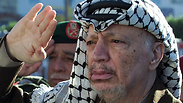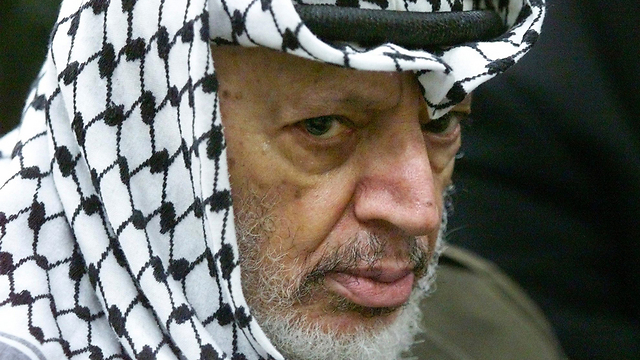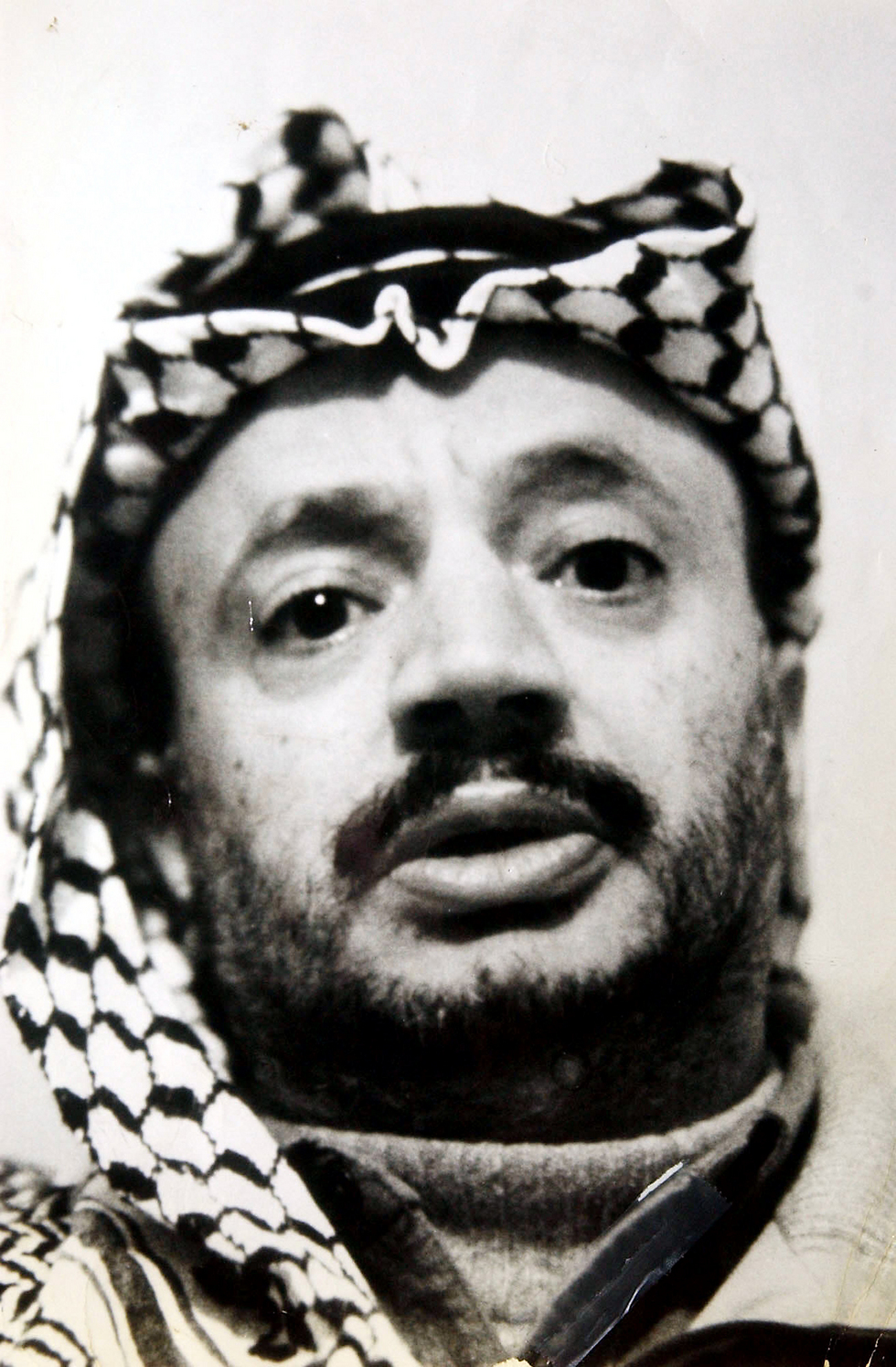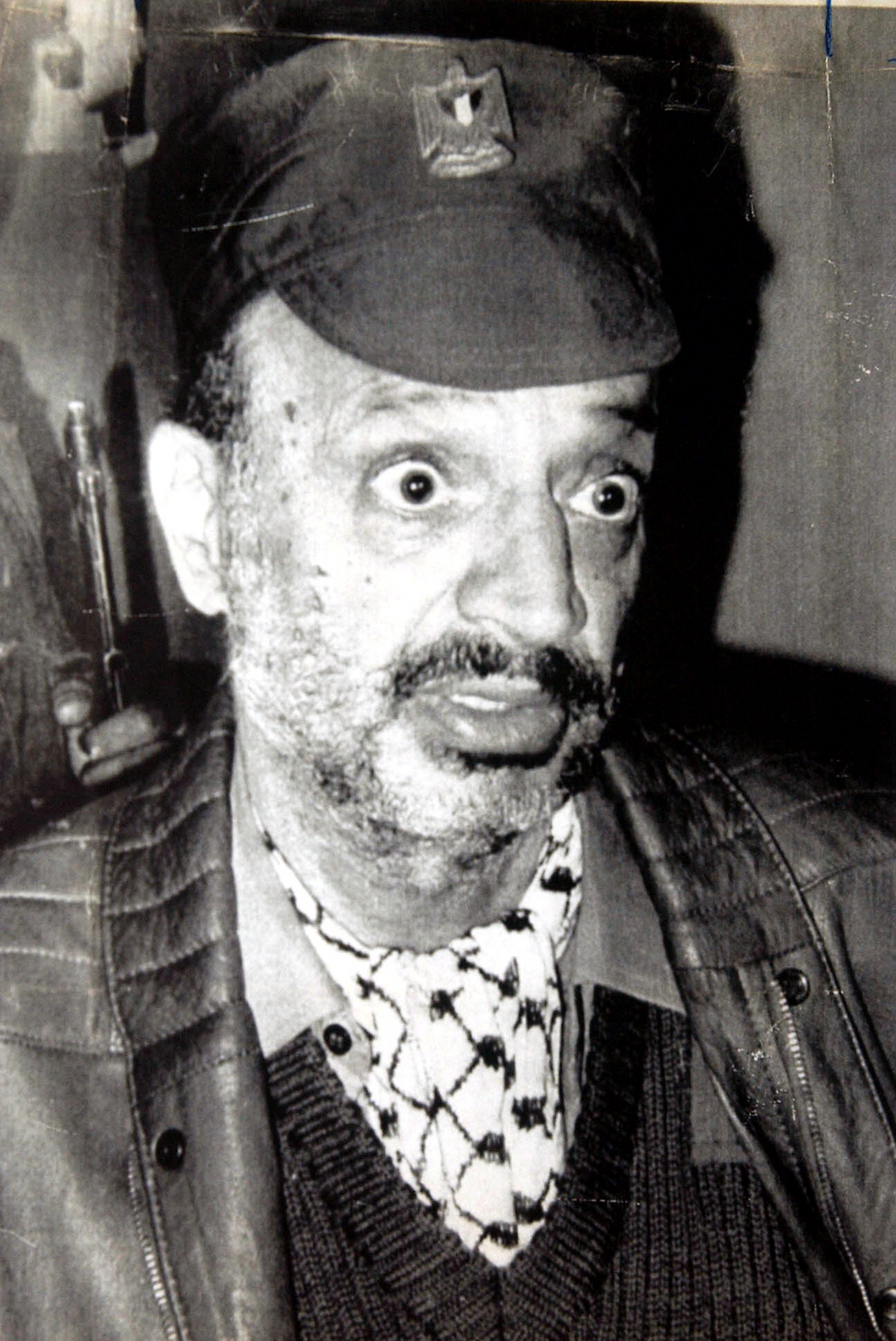

New book: Israeli assassination attempt on Arafat called off at last minute
New York Times publishes excerpts from 'Rise and Kill First,' new book by Ronen Bergman on Israel's history of targeted killing, describing operation to shoot down a plane Arafat was believed to be on, which was called off at the last minute.
A month after the end of Operation Peace for Galilee, also known as the first Lebanon War, an Israeli operation to assassinate PLO leader Yasser Arafat was called off at the last minute, according to "Rise and Kill First: The Secret History of Israel’s Targeted Assassinations," a new book by Dr. Ronen Bergman, excerpts of which were published by the New York Times on Tuesday.
According to Bergman, in the afternoon hours of October 22, 1982, the Mossad received information from two sources it had inside the PLO that Arafat was due to fly the next day on a private plane from Athens to Cairo.
Two agents from the Mossad's Caesarea unit were dispatched to the Athens airport to identify Arafat and confirm he boarded the plane.
According to the book, Ariel Sharon, the defense minister at the time, put heavy pressure on then-IDF chief of staff Rafael Eitan (Raful) to give the go-ahead for the operation. Two F-15 planes were put on alert, ready to take off at a moment's notice from the Tel Nof Airbase to intercept.
On October 23, at 2:05pm, the Mossad agents stationed at the Athens airport sent a message to Tel Aviv: "He's here. Positive ID."
But the operation was aborted at the last minute, while the IAF jets were already in the air watching the target, by then-Air Force commander David Ivry, who had his doubts about the target.
"I didn't get this whole story," Ivry told Bergman years later, in an interview conducted for the book. "It wasn't clear to me why Arafat would be flying to Cairo. According to intelligence, he had nothing to look for there at the time. And if he was going there, why in that kind of transport plane? Not at all dignified enough for a man of his status. I asked the Mossad to verify that he was the man."
The Mossad agents at the Athens airport reconfirmed the positive identification, adding: "The objective has grown a longer beard to mislead."
At 4:30pm, the cargo plane Arafat was presumably on took off from Athens, and Ivry received the order from IDF chief Eitan to shoot down the plane.
"You don’t fire without my OK," Ivry told the pilots before they left. "Clear? Even if there's a communications problem, if you don't hear my order—you don't open fire."
The F-15 jets took off, but the Air Force commander continued having doubts. The Mossad insisted Arafat was indeed on the plane, while the IDF chief pressured Ivry to report on the status of the operation.
"Raful," Ivry told Eitan, "we do not yet have final positive confirmation that it is him."
While the F-15s were making their way to intercept the cargo plane, Ivry took additional measures to ascertain that Yasser Arafat was indeed on the plane, fearing the international ramifications of killing the wrong man. He turned to the Military Intelligence Directorate (MID) and to the Mossad and asked for a visual identification of the target.
At 4:55pm, Bergman writes, 25 minutes after the Israeli jets took off from Tel Nof, the Air Force commander received an urgent phone call. "Doubts have arisen," he was told. The Mossad had other sources that said the PLO leader was not in Greece at all and could not possibly be on that plane.
Ivry told the pilots, who were tracking the cargo plane, "We're waiting for more information. Keep eyes on the target and wait."
About half an hour later, Mossad and MID sources reported that the man on the plane was Yasser Arafat's younger brother, Fathi Arafat, a pediatrician and the founder of the Palestinian Red Crescent Society, who was escorting 30 wounded Palestinian children, survivors of the Sabra and Shatila massacre, to Egypt for treatment.
Relieved, Ivry ordered the pilots: "Turn around, you're coming home."


















